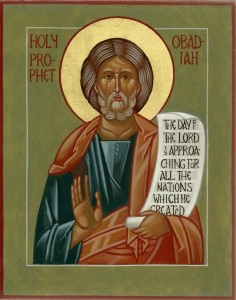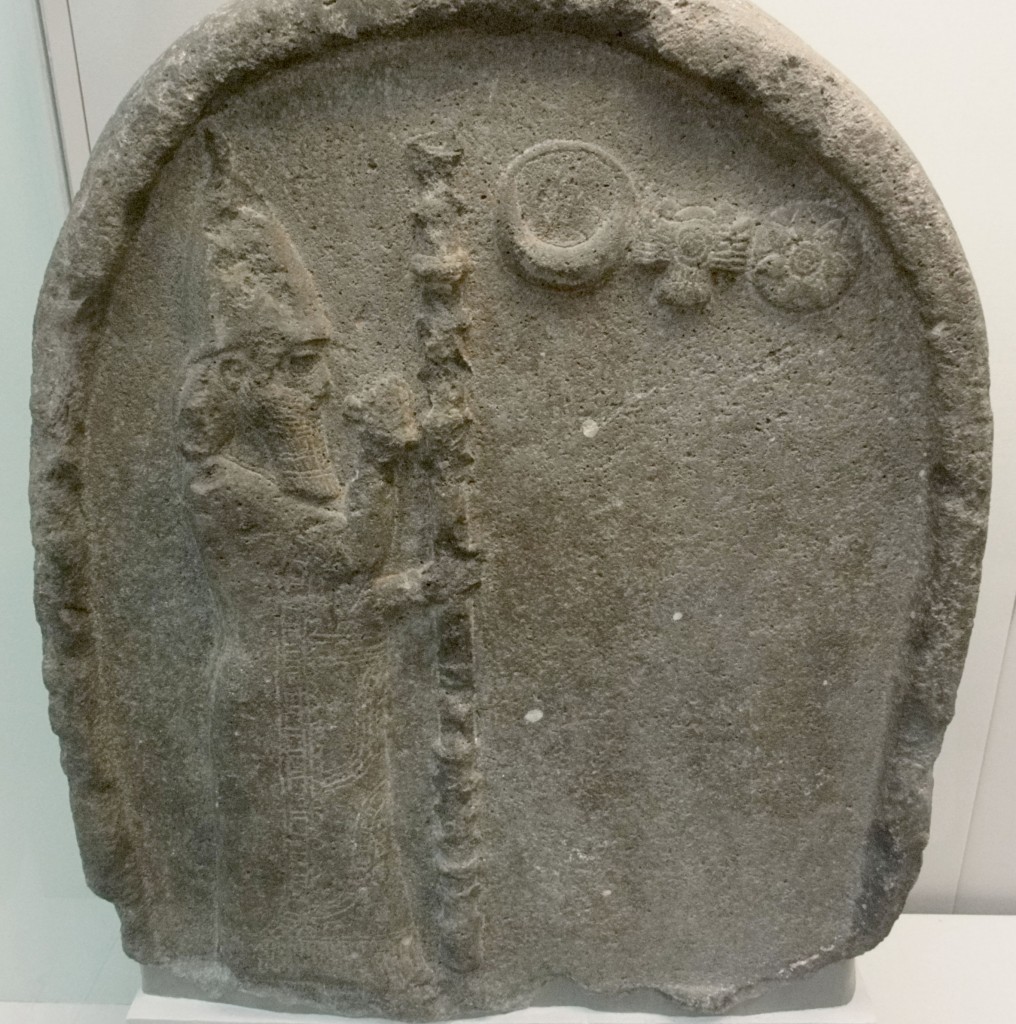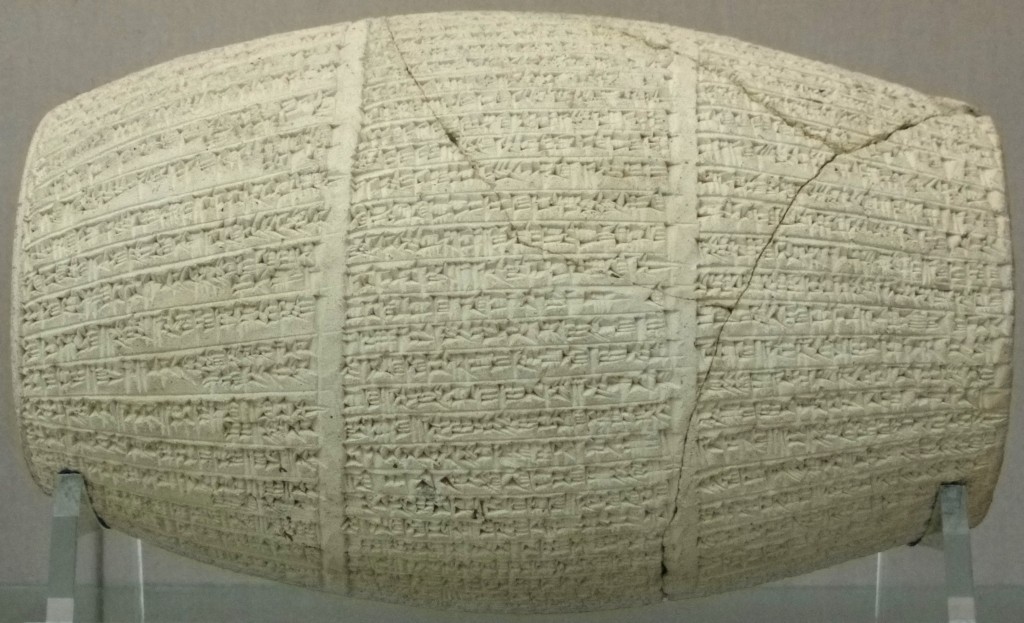 Obadiah
Obadiah
5 If thieves came to you, if plunderers came by night—how you have been destroyed!—would they not steal only enough for themselves? If grape gatherers came to you, would they not leave gleanings? 6 How Esau has been pillaged, his treasures sought out! 7 All your allies have driven you to your border; those at peace with you have deceived you; they have prevailed against you; those who eat your bread have set a trap beneath you—you have no understanding. 8 Will I not on that day, declares the Lord, destroy the wise men out of Edom, and understanding out of Mount Esau? 9 And your mighty men shall be dismayed, O Teman, so that every man from Mount Esau will be cut off by slaughter.
Our age is an age that does not seem to believe in divine judgment. There are likely many reasons for this. Perhaps the Church itself has oftentimes not helped to promote a solid, biblical understanding of judgment. Think, for instance, of what it does to the idea of divine judgment when it is attached to, say, petty legalisms or when it is caricatured in an effort to frighten people.
In Umberto Eco’s novel, The Mysterious Flame of Queen Loana, the character Yambo (based, at least in part, on Eco’s own life) recalls how his spiritual director frightened him and the other children with a story about judgment.
One evening the spiritual director stood in front of the altar balustrade, illuminated – like all of us, like the entire chapel – by that single candle that haloed him in light, leaving his face in darkness. Before dismissing us, he told us a story. One night, in a convent school, a girl died, a young, pious, beautiful girl. The next morning, she was stretched out on a catafalque in the nave of the church, and the mourners were reciting their prayers for the deceased, when all of a sudden the corpse sat up, eyes wide and finger pointing at the celebrant, and said in a cavernous voice, “Father, do not pray for me! Last night I had an impure thought, a single thought – and now I am damned!”
A shudder travels through the audience and spreads to the pews and the vault, seeming almost to make the candle flame flicker. The director exhorts us to go to bed, but no one moves. A long line forms in front of the confessional, everyone intent on giving in to sleep only after the merest hint of sin has been confessed.[1]
How horrible! A pious child had one impure thought and then was cast into hell forever! This is the kind of caricaturing I am talking about. This kind of attempt to shock and to terrify inevitably backfires and actually erodes a right understanding of judgment. Again, perhaps the church is to blame.
Of course, whether the churches fail in this regard or not, there is within mankind a natural abhorrence of the idea of judgment and accountability. We are born rebels. We are born thinking that we will never have to answer for our sins. That ancient preacher, Tertullian, once said, “We get ourselves laughed at for proclaiming that God will one day judge the world.”[2]
But judgment is no laughing matter and in the judgment there will be no laughter! The little book of Obadiah is concerned to a large extent with this fact. It is concerned with the reality of divine judgment as well as with the awfulness of it.
The historical context in which this teaching is advanced involves Edom, Judah’s neighbor to the southeast. Edom aided and abetted the Babylonians in their ransacking of Jerusalem and then stood over reeling and devastated Judah with mocking scorn. Against such wickedness, the prophet Obadiah brought the word of the Lord. God would bring Edom down. Edom’s haughty laughter would not last long. In verses 5-9, the coming destruction of Edom is made chillingly clear.
The coming judgment will be as ruthless and merciless as the sin that invites it.
First, the Lord says that Edom will be shown the same lack of mercy it showed Judah.
5 If thieves came to you, if plunderers came by night—how you have been destroyed!—would they not steal only enough for themselves? If grape gatherers came to you, would they not leave gleanings? 6 How Esau has been pillaged, his treasures sought out!
The image of the greedy thief in verse 5 is most interesting. Some see in verse 5 a description of Edom’s sins against Judah. Mark Dever, for instance, writes,
In verse 5, God shows that Edom’s pride has led it into heinous sin against Judah, which he compares with the actions of robbers and grape pickers…In other words, neither robbers nor grape pickers will take everything. They take only what they need. But Edom had been merciless in its treatment of Judah.[3]
Bruce Cresson, however, sees verse 5 as a description of the judgment that will fall upon Edom.
Verses 5-6 express one thought: all the wealth and treasures of Edom will be taken away. The loss is of such proportions that even the prophet exclaims in a poetic aside, how you have been destroyed! This is not the work of ordinary thieves and robbers.[4]
It is likely that both approaches are correct. It is likely, in other words, that this is a reference to Edom’s thorough destruction because of Edom’s thorough crime. “On the one hand,” writes Paul Raabe, “Edom’s secret places and hidden treasures will be thoroughly searched out, found, and plundered…On the other hand, Edom has acted just like thieves and plunderers of the night (v 5).”[5]
Because Edom had been ruthless in judgment the judgment they would receive would likewise be ruthless. While we as Christians rightly reject anything like karma, there is indeed a kind of reciprocity in our sinful actions and the judgment they bring. You can see this, for instance, in Jesus’ words in Matthew 7:
1 “Judge not, that you be not judged. 2 For with the judgment you pronounce you will be judged, and with the measure you use it will be measured to you.
Are you ruthless in judgment? Then ruthless will your judgment be! “Do not be deceived,” writes Paul in Galatians 6:7, “God is not mocked, for whatever one sows, that will he also reap.” This sowing and reaping is what God is speaking of when he tells Edom that they will be mercilessly plundered because they were merciless in their plundering!
Consider the word of the Lord and tremble at the amazing calamity that our sin calls down upon us. All of us have experienced this in ways big and small. In Proverbs 26, this principle is spelled out with particularly forceful imagery.
27 Whoever digs a pit will fall into it, and a stone will come back on him who starts it rolling.
Edom had dug a pit for Judah…but it was Edom who would be cast into the pit.
Edom had rolled a stone over Judah…but the stone would roll back on Edom.
This is the nature of judgment. It is just and it is exacting. We are right to tremble before it!
God sometimes uses our partners in crime to mete out the judgment that we invite together.
In an interesting twist, the Lord announces to Edom that one of the ways judgment will come upon them will be through the ally they assumed would protect them.
7 All your allies have driven you to your border; those at peace with you have deceived you; they have prevailed against you; those who eat your bread have set a trap beneath you—you have no understanding. 8 Will I not on that day, declares the Lord, destroy the wise men out of Edom, and understanding out of Mount Esau? 9 And your mighty men shall be dismayed, O Teman, so that every man from Mount Esau will be cut off by slaughter.
Specifically, this is a reference to Babylon. Remember, Edom had watched and assisted Babylon in their attack upon the people of God. Babylon had left Edom alone. Edom’s gloating was therefore buttressed by the assumption that they themselves would never be the object of Babylon’s wrath. But it was not to be. Raabe explains:
Obad 1-7 found its fulfillment, at least in principle, in 553 B.C. when Nabonidus of Babylon campaigned against Edom while on his way to Teima in Arabia. According to the most likely reconstruction, Nabonidus’s campaign brought an end to Edom’s existence as an independent state…Several Edomite sites show evidence of destruction about this time, although some occupation and activity continued into the Persian period. In all likelihood Nabonidus maintained control over the land and the Edomites who remained (cf. Mal 1:3-4). Then after 539 jurisdiction probably transferred to Persia. By the end of the fourth century the Nabateans had occupied the territory of Edom.[6]
This Nabonidus was something else. He was the last king of Babylon, reigning from 556-539 BC. The “Stele of Nabonidus” is housed at the British Museum.

Upon it is an engraving of the Babylonian leader worshipping the gods. Here is how the British Museum describes it:
Basalt stela: rounded at the top, and bearing on its obverse the figure of a king and astronomical symbols (the star of Ishtar-Venus, the winged disc of the sun god Shamash and the crescent of the moon god Sin; the latter is the largest, showing supremity), sculptured in relief within a sunk panel. The king wears a conical headdress and a fringed garment, which reaches to the ankles. In his right hand, which is raised, he holds a short cylindrical object, and with his left hand he supports a ringed staff or standard with its end resting on the ground.[7]
Also in the British Museum is the Nabonidas Cylinder of Sippar.

It recounts Nabonidas’ devotion to the gods and his efforts to restore their temples. It reads, in part:
I, Nabonidus, the great king, the strong king, the king of the universe, the king of Babylon, the king of the four corners, the caretaker of Esagila and Ezida, for whom Sin and Ningal in his mother’s womb decreed a royal fate as his destiny, the son of Nabû-balâssi-iqbi, the wise prince, the worshiper of the great gods…[8]
Perhaps you get the point. It was in people like this that Edom had placed its trust! It was to people like this that Edom looked for protection and salvation. It was with people like this that Edom made its alliance.
Not surprisingly, folks who call themselves “the king of the universe” do not end up playing fairly in the sandbox with others. Sooner or later bullies need another person to pummel.
It was with Babylon that Edom sinned and it was through the hand of Babylon that God brought calamity upon Edom!
God sometimes uses our partners in crime to mete out the judgment that we invite together. If you enter into an unholy alliance you are as apt to be undone by it as helped by it. Such is the nature of evil. We may say there is honor among thieves, but that really is not true, for thievery is inherently dishonorable.
Beware unholy alliances! Beware of binding yourself to those who do not love the things of God! This is especially true for the Church, who, tragically, has sometimes bound herself to wicked powers throughout history with the idea that she might be afforded some protection in so doing. But this ought never to be. In 2 Corinthians 6 we read:
14 Do not be unequally yoked with unbelievers. For what partnership has righteousness with lawlessness? Or what fellowship has light with darkness? 15 What accord has Christ with Belial? Or what portion does a believer share with an unbeliever? 16 What agreement has the temple of God with idols? For we are the temple of the living God; as God said, “I will make my dwelling among them and walk among them, and I will be their God, and they shall be my people. 17 Therefore go out from their midst, and be separate from them, says the Lord, and touch no unclean thing; then I will welcome you, 18 and I will be a father to you, and you shall be sons and daughters to me, says the Lord Almighty.”
Do not seek protection in the arms of Babylon, whoever and whatever Babylon might be for you! Such unholy relationships usually result in the destruction of everybody involved and the object of judgment can sometimes become the means by which judgment comes.
The saving blood of Christ is the only refuge from the judgment we have invited and deserve.
This talk of judgment is difficult but it is necessary. We must heed the divine warning to Edom and we must observe their calamitous fall. Why? So they we do not walk in their paths! Even so, the human heart turns ever and again to sin and continues to invite the judgment of a just God.
What, then, are we to do?
To begin, we must seek our salvation somewhere other than in might and power.
Consider David’s determination to do just this in Psalm 20.
7 Some trust in chariots and some in horses, but we trust in the name of the Lord our God. 8 They collapse and fall, but we rise and stand upright. 9 O Lord, save the king! May he answer us when we call.
Your salvation cannot be money. Money is as apt to ruin as to help.
Your salvation cannot be the government. The government is as apt to turn and devour as it is to assist and prop up.
Your salvation cannot be your own efforts. Your own efforts are feeble and will, in time, fail.
Your salvation must be the name of the living God! Only in God is there protection and only in God is there safety from the judgment we all deserve. One of the most beautiful expressions of this is found in Romans 8.
1 There is therefore now no condemnation for those who are in Christ Jesus. 2 For the law of the Spirit of life has set you free in Christ Jesus from the law of sin and death.
Judgment is terrible.
Salvation is beautiful.
Judgment against sin is a certainty.
Christ took this judgment upon Himself and now, by grace through faith, salvation in His name is a certainty for any and all who will come.
Your wicked deeds will come back upon you and bring destruction in their wake!
But the righteousness of Christ can come upon you if you will receive it. It brings salvation in its wake!
Edom was haughty and Edom fell into ruin.
We can repent and humble ourselves before Christ and be raised to eternal life.
Edom is the story of the whole human race outside of Christ.
Easter is the story of the whole human race in Christ.
Do not trust in the kings of Babylon. Trust in the King above all kings.
Do not take your stand with Edom. Rather, repent and run to the God of mercy…and you will be given mercy!
[1] Umberto Eco, The Mysterious Flame of Queen Loana (New York: Harcourt Inc., 2004, p.391-392.
[2] Quoted in Brian Jones (2011-08-01). Hell Is Real (But I Hate to Admit It) (p. 20). David C. Cook. Kindle Edition.
[3] Mark Dever, The Message of the Old Testament. (Wheaton, IL: Crossway Books, 2006), p.754.
[4] Bruce C. Cresson, “Obadiah.” The Broadman Bible Commentary. Clifton J. Allen, Gen. Ed. Vol. 7 (Nashville, TN: Broadman Press, 1972), p.147.
[5] Paul R. Raabe, Obadiah. The Anchor Bible. Eds., William Foxwell Albright and David Noel Freedman. Vol. 24D (New York, NY: Doubleday, 1996), p.157.
[6] Raabe, 157.
[7] https://www.britishmuseum.org/research/collection_online/collection_object_details.aspx?objectId=367 113&partId=1
[8] https://en.wikipedia.org/wiki/Cylinders_of_Nabonidus

Pingback: Obadiah | Walking Together Ministries